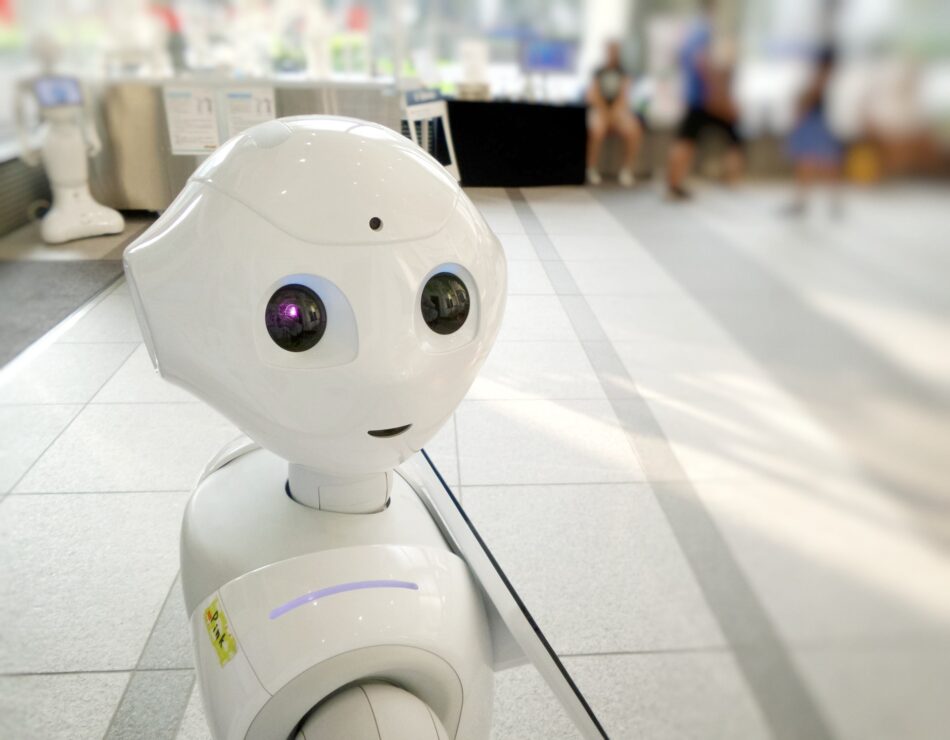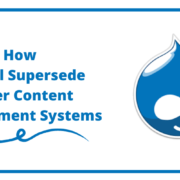The growth of artificial intelligence seems unstoppable and can certainly contribute to the success of companies in the short, medium and long term. Let’s see how and why.
Artificial intelligence (AI) has long been part of our issues, especially those that concern innovation within companies. In this sector, more and more professionals seem to agree that AI is one of the main technologies that will help organizations on the path to success.
In fact, the numbers tell us that in the next two years the number of companies that will use artificial intelligence will grow steadily, and this fact does not surprise us at all. Machine learning, in fact, is becoming increasingly common, thanks to its ability to manage agile work, simplify processes and improve products. As a result, the productivity of the company improves and opens the way to business success.
Artificial intelligence: what is it and what is it for?
It is a technology developed with the ability to simulate the processing of the human brain with machines and computer systems, exploiting the possibilities and improvements that technology offers. The combination of scientific and logical processes allows artificial intelligence to analyze and solve problems independently, with progressive learning that allows it to continuously improve.
It also does this always starting from algorithms and paradigms of a human nature. Its goal, therefore, is to facilitate processes and analyzes in such a way that people’s lives are easier and the tasks are much simpler to carry out.
So having clarified what AI is, now is the time to ask yourself what it is for. If it is true that there are many organizations that have already bet on this new tool, it is equally true that there are still some who have doubts about its implementation. To better understand, let’s see what it can do:
Automate processes. The introduction of certain mechanisms can help automate some manual tasks so that they are performed in less time and with fewer resources. This increases the productivity of the company and also allows the scalability of processes and jobs.
Analyze the data. In a world like the present one, big data are the protagonists. We are talking about the data era and the large amount of information that companies can receive, analyze and, consequently, use in order to make strategic decisions. In this sense, artificial intelligence helps to organize and order the immensity of such data to know which can be useful and interesting for the business model.
Assist customers. The implementation of tools that, automatically, can give response and attention to your customers is the most efficient way to generate the necessary relationship but with the minimum investment of time and resources. Chatbots are the masters in this field , that is, real-time chats to give a virtual service to the customer, increasingly capable of offering personalized treatment. A good example is the Google assistant, which has also started to implement its Google Duplex technology in some countries, in a very short time and in a limited way.
Help the team. Although artificial intelligence can replace tasks that were previously done manually, it does not mean that this technology is an enemy of workers. In reverse. Artificial intelligence provides them with information and supports them in some of their daily tasks. Thanks to these systems, for example, employees can have a more direct relationship with customers who have previously been filtered and analyzed by Artificial Intelligence.
To innovate . Saving time and resources is synonymous with a greater ability to dedicate oneself to innovation, improvement, growth and creativity.
Learn from mistakes. The ability of machine learning is unquestionable and, when a failure is recognized, it is able to record it so that it does not happen again in the future. As a result, it improves productivity by ensuring that the same mistake is not repeated.
AI in the corporate world
The potential business applications of AI are mind-boggling, despite the fact that there is still a long way to go from the training point of view. In fact, according to a study carried out by the consultancy firm Morning Consult for IBM on AI in three areas (USA, EU and China), 39% of organizations believe that the greatest obstacle to its development is the lack of specialized knowledge.
However, the figures are quite positive. According to the aforementioned study, drawn up in February 2020, 45% of large enterprises and 29% of small-medium enterprises have already implemented or are implementing this technology in their processes. In addition, security, process automation and customer service are on the podium of the options that companies choose in terms of Artificial Intelligence.
This growth is understandable when considering that AI can become a perfect ally of organizations. In addition to optimizing processes and stimulating growth, it can, for example, predict, on the basis of a brief data analysis, which are the best marketing actions for a company, who are the most dissatisfied customers or who is most interested in a certain product. It is, without a doubt, a very powerful tool that can be applied to all areas of an organization.
Its advantages and opportunities are reflected in three examples:
In customer service: as already said, through chatbots, which are changing the way we handle requests and complaints, saving thousands of hours of time.
Detection and reporting of potential non-payments.
In marketing: the use of predictive algorithms allows you to learn from mistakes and identify and predict consumption trends. In addition, the ability to analyze by data collection tools enters a new phase, and a perfect example of this is Salesforce Einstein Analytics . And, if we talk about algorithms and digital marketing, we cannot forget SEO , in which the use of such AI and Python algorithms for the complex analysis of keywords and searches in a much shorter time is increasingly common. Speed is the new key concept here.
Tips for integrating artificial intelligence into companies
The integration of artificial intelligence into a company’s processes is not so simple: technology, human resources and a lot of knowledge are needed more than ever. In any case, little by little, it can be implemented. Here are some tips on how to do it:
Learn about AI and accept it as an innovation
One of the first problems to consider is that Artificial Intelligence, like other innovations, does not offer an immediate return. It requires time and development, as well as learning from company staff to derive maximum benefit from it. Awareness in management positions in organizations is the key concept for applying AI.
AI is a tool, not an employee
In order for it to grow and offer better performance, it is essential that it be powered by data and information. Coordination of the AI implementation strategy is crucial. Human resources must have the task of making technology take the right direction and put the necessary tools at its disposal. Furthermore, it must be aligned with the company’s KPIs to try to achieve well-defined goals.
Artificial intelligence will not end the workforce
If it is undeniable that this technology will replace some jobs, it is equally true that from its existence new ones will be born. It is a new tool like any other, and its implementation and application generates new opportunities for those who will be properly trained to be leaders in coordination and development.
Learn from other companies that use artificial intelligence
There are many companies that don’t like to watch what others are doing. We must not fear the success of others, but see it as a solid foundation on which to build our learning and growth. If other companies, even if competitors, have implemented AI, we must observe how they did it and replicate their successes avoiding their mistakes.

Artificial intelligence has been chosen by large global companies such as Apple, Amazon, Microsoft, Facebook, Google, IBM and Skype. To these communication giants are added other sectors, such as the automotive industry, with Toyota, and its commitment to the development of unmanned cars and robots, or with Tesla and the application of this technology within the vehicles of the future. In the same way, other organizations in more traditional sectors have been able to adapt to this reality, such as the multinational fuel company Shell who has been able to insert a virtual assistant for customers 24 hours a day.
It is clear, therefore, that the next step in the analysis and understanding of our environment – and our reality – is performed by computers and machines, placing a new paradigm also for companies. Artificial Intelligence, as we have seen, generates innumerable questions. However, one of them most stands out: What is the opportunity that can derive from it?




